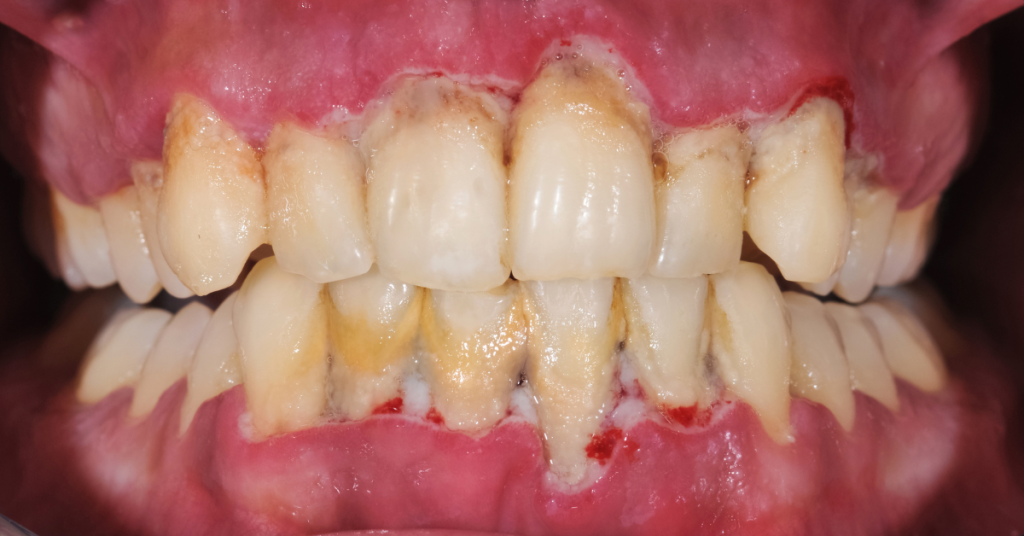Ever wondered, Does gingivitis cause dry mouth? Gingivitis, a common gum disease, is something that has touched most of our lives in one way or another. Understanding the connection between this oral issue and the discomfort of a dry mouth is vital.
After all, our mouth is a complicated ecosystem, and even the smallest disturbance can lead to a variety of symptoms, dry mouth included.
Uncovering the Relationship Between Gingivitis and Dry Mouth
So, we know that gingivitis is the inflammation of the gums, often resulting from plaque buildup. A dry mouth, or xerostomia, on the other hand, is a condition marked by a decrease in saliva production, giving you a constant thirsty feeling. Even though these two issues might seem unrelated at first, when you delve deeper into them, the connection becomes clearer.
The truth is, gingivitis isn’t usually a direct cause of dry mouth. However, it can indirectly lead to this condition. For example, one of the common symptoms of gingivitis is halitosis or bad breath. People with bad breath tend to breathe through their mouths more frequently, which dries out the mouth and could cause xerostomia.
Find Out: Can Gum Infection Cause Dry Mouth?
Dry Mouth: It's More Than Just Feeling Thirsty
A dry mouth might seem like nothing more than an annoyance, but it goes beyond that. The absence of adequate saliva in the mouth increases the risk of tooth decay and gingivitis because the acids in the mouth aren’t neutralized properly. This can cause a vicious cycle where the conditions feed off each other.
It’s also worth noting that many individuals with dry mouth often turn to sweetened beverages for relief, leading to an increase in plaque and worsening gingivitis.
Medication: The Unexpected Link
There’s another connection between gingivitis and dry mouth: medication. Some over-the-counter and prescription medications for gingivitis, including certain types of mouthwash, can lead to dry mouth as a side effect.
In these cases, while the medication might be helping manage gingivitis symptoms, it could also be indirectly causing dry mouth. So, if you notice any changes after starting a new medication, it’s always best to talk to your healthcare provider.
How to Break the Cycle: Maintaining Good Oral Health
The best way to break this cycle and keep your mouth healthy is through proper oral hygiene. Brushing and flossing regularly, usage of oral spray for dry mouth along with regular dental check-ups, can help prevent both gingivitis and dry mouth. Reducing your sugar intake and staying hydrated throughout the day can also help.
And remember, your mouth reflects your overall health. So, if you take care of your oral health, it can benefit your general well-being as well. On the flip side, systemic issues like diabetes can increase your risk of gingivitis and dry mouth (Read: How Diabetes Can Lead to Dry Mouth).
So, does gingivitis cause dry mouth? Not directly, but the link between the two is more complex than it first appears. By understanding how they’re connected, we can better manage our oral health and prevent both conditions. Open communication with your healthcare provider is key to early detection and treatment. Here’s to a healthier, happier you!
Lubricity is a Proud Supporter of the
What do customers say about Lubricity Dry Mouth Spray?













